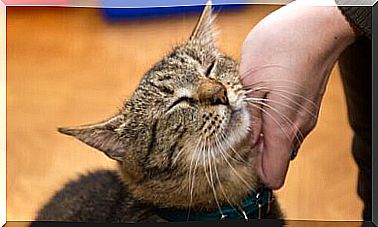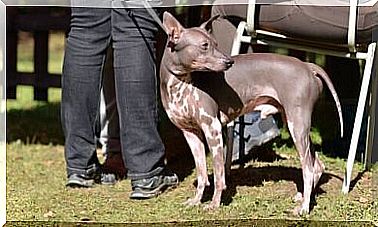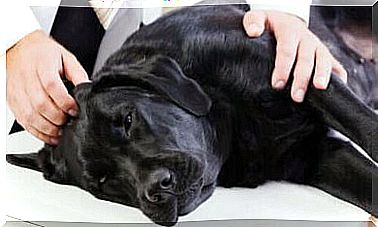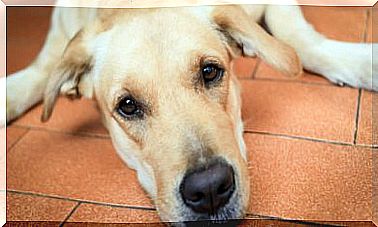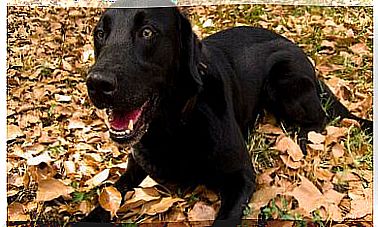Treatments For Anemia In Dogs
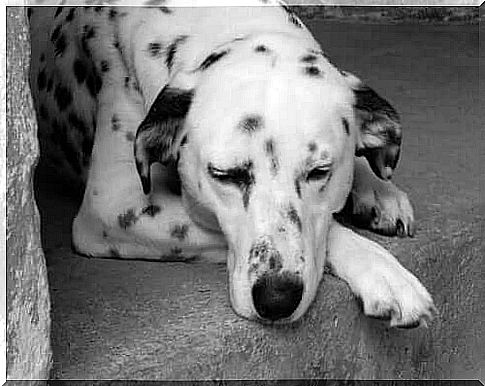
Anemia in dogs is a common condition that involves a decrease in the number of red blood cells in the body. As the causes that can cause this disease are varied, it is advisable to know it better.
What is anemia?
Anemia is a disease caused by decreased production of red blood cells in the bone marrow. This, in turn, causes the tissues to receive less oxygen.
Red blood cells or erythrocytes are the molecules responsible for transporting oxygen throughout the body. For this reason, among the most representative symptoms of anemia are fatigue and greater difficulty in exercising.
Types of Anemia in Dogs
There are different types of anemia, which vary depending on the cause and severity. Furthermore, they are classified into two groups of anemia, depending on whether they are regenerative or non-regenerative.

regenerative anemias
In these types of anemia, the bone marrow produces a large number of red blood cells, but not enough to fight the blood loss. In turn, blood loss can be caused by several reasons.
Among these reasons are bleeding from accidents, ulcers or the presence of fleas or intestinal parasites. Another reason could be the occurrence of hemolysis, that is, massive destruction of red blood cells.
Non-regenerative anemias
In non-regenerative anemias, the bone marrow is in a situation where it is unable to produce enough red blood cells. The causes of these anemias can vary.
They usually occur due to diseases that directly attack the bone marrow. An example is autoimmune diseases.
Another option is for the bone marrow to suffer an indirect attack. This can be due to a deficiency in erythropoietin, a hormone that supports red blood cell production. Among other reasons are hormonal diseases or nutritional deficiencies.
Furthermore, there is another classification of types of anemia in dogs. This disease can be hemolytic (the immune system destroys red blood cells), aplastic (incorrect production of red blood cells in the bone marrow), or hemorrhagic (caused directly by blood loss).
Causes of Anemia in Dogs
Each type of anemia is caused by a specific reason. And among the causes that can lead to anemia are bleeding. Bleeding can be internal or external, causing blood loss which in turn results in anemia.
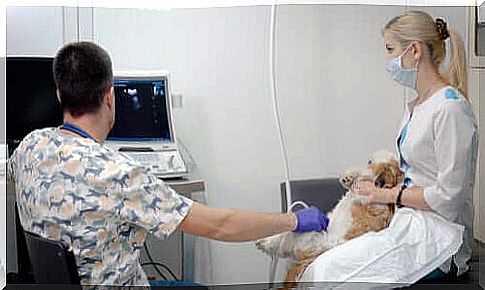
Other possible causes are as follows:
- Immune-mediated disease. One in which the immune system itself is responsible for attacking red blood cells.
- Bleeding caused by severe inflammation in the gastrointestinal tract.
- Reaction or exposure to certain medications, which can interfere with the production of red blood cells.
- Infectious diseases, such as those transmitted by ticks.
- Blood loss caused by flea infestations.
- Exposure to toxins. An example is lead poisoning.
- Cancer. Anemia can result from bleeding from a tumor or from gastrointestinal bleeding.
Therefore, the causes of this disease are varied. In general, it can arise due to loss of blood, the destruction of red blood cells or the body’s own inability to produce them.
Treatment of anemia in dogs
Anemia has very characteristic symptoms, including fatigue, decreased appetite, or difficulty exercising. Once the main symptoms are identified, the necessary tests are performed to confirm the diagnosis.
It is convenient to clarify that this pathology is not contagious, although it can also affect other domestic animals, such as cats. However, depending on the severity, it is necessary to apply one type of treatment or another beforehand. Treatment is usually determined when the cause of the anemia is known.
In case the anemia has been classified as severe, the patient will likely need a blood transfusion. Blood transfusions can replace lost red blood cells.
Can anemia be prevented?
Some measures can be taken to prevent anemia. There are times when anemia is due to a nutrient deficit. To solve this problem, the market offers different types of diets adapted to each case. Generally, if this is the case, the veterinarian will recommend a diet rich in iron, protein, and vitamins.
Iron is an element that forms hemoglobin, which in turn is a protein located in red blood cells involved in oxygen transport. That’s why iron is so important in the diet for reversing anemia.

